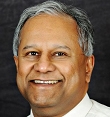Canada will persist with its new Immigrant Investor Venture Capital plan despite the less-than-enthusiastic response to it so far.
“Pilot programs like this always take time to be known in a competitive global environment,” Citizenship and Immigration Minister Chris Alexander said Tuesday in Mississauga, Ont. at a meeting with a select group of media.
Canada has so far received just six applications for the pilot program as of June 8, according to data obtained by Richard Kurland, a Vancouver immigration lawyer through an Access to Information request.
Minister Alexander ruled out easing the entry norms under the pilot to make it popular like the previous one.
Popularly referred to as the “millionaire visa,” at its launch in January it was expected that at least 50 foreigners would join the plan, under which applicants must be far richer than what was stipulated previously for a similar program.
Would-be immigrants under this class must now invest a minimum of C$2 million in Canada for a 15-year period and must have a net worth of at least C$10 million. Among other new criteria, they must also be able to speak English or French.
Launched in the mid-1980s, the old plan fast-tracked visas for foreigners with a net worth of C$800,000 and C$400,000 to invest. The amounts were later upped to a net worth of C$1.6 million and C$800,000 to invest.
The old plan was very popular, particularly with Chinese investors. As demand surged, the program was frozen in 2012 to clear backlog. It was scrapped last year amid criticism over allowing the global rich to buy their way into Canada.
[Minister Chris Alexander] said the program was the first of its kind in the world and proof that Canada’s immigration programs will remain the most agile and responsive. “We are prepared to adjust.”
Minister Alexander ruled out easing the entry norms under the pilot to make it popular like the previous one. “Keeping program standards high will ensure that Canadians continue to benefit from our immigration programs,” he said.
The minister said the pilot was only one among a number of pathways to attract investment into Canada. He pointed out the Start-Up Visa Program that hopes to attract immigrant entrepreneurs who have the potential to build innovative companies that can compete on a global scale and create jobs.
He said the program was the first of its kind in the world and proof that Canada’s immigration programs will remain the most agile and responsive. “We are prepared to adjust.”
Responding to new high in immigration levels
On the controversial aspects of Bill C-24, which came into force last month, Alexander said his government has only built on existing rules. “The new rules are meant to weed out citizens of convenience who view the Canadian passport only as an insurance policy.”
He said Canada has increased its response to refugee resettlement in view of the crisis in Iraq and Syria along with renewing its commitment to reuniting families.
The minister said in the past three years close to 75,000 people have come in on family reunification visas and 50,000 have been issued super visas.
There has also been an increase in the numbers of visitors from countries like Brazil, China and India on account of new 10-year multiple entry visas, [Minister Alexander] added.
On the issue of reducing the age of dependents to 18, Alexander said it was done to make it consistent with laws of the land, which consider those above that age as independent adults.
“When these young adults apply for residency on their own, their pathway would be faster as the points system gives them a huge advantage,” he explained.
There has also been an increase in the numbers of visitors from countries like Brazil, China and India on account of new 10-year multiple entry visas, he added.
“These visitors are economically significant for the Canadian economy along with international students, whose intake has doubled over the past few years. Last year the number crossed 64,000, up from 29,000.”
The minister said international students are potential immigrants through a new channel.
With 262,000 people entering in 2014 alone, he said the current level of immigration is a new high in Canadian history.
Ranjit is a Toronto-based writer with interest in Canadian civic affairs, immigration, the environment and motoring. Maytree and Al Jazzera English alumnus.





